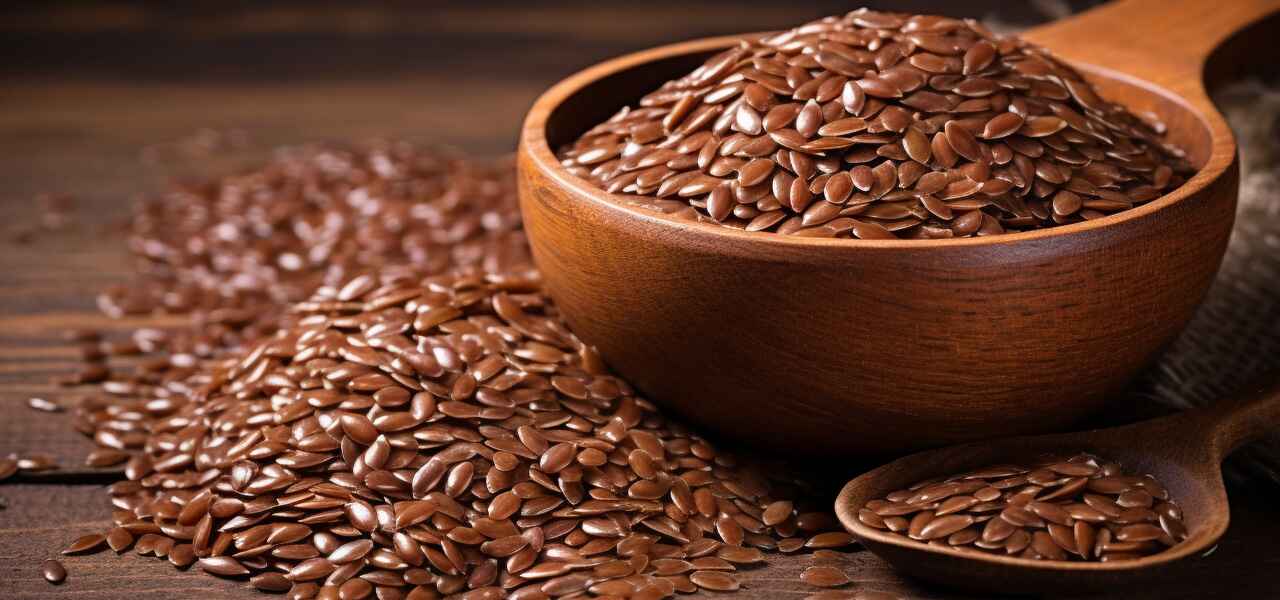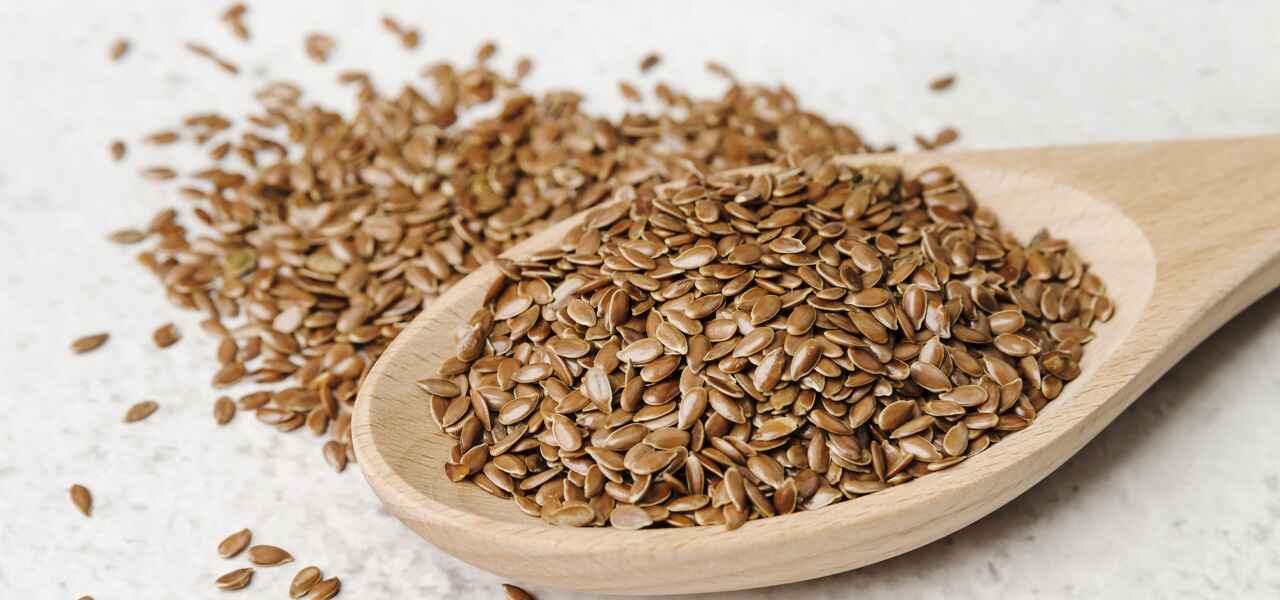Introduction
Flaxseeds often referred to as a “super food,” have been consumed for thousands of years for their incredible health benefits. These tiny, nutty-flavored seeds pack a powerful nutritional punch, offering a wide array of health advantages that can improve everything from heart health to skin condition. Whether you’re already familiar with flaxseeds or just discovering them, this blog will delve deep into their benefits, nutritional value, and ways to incorporate them into your diet.
What Are Flaxseeds?
Flaxseeds come from the flax plant (Linum usitatissimum), which is one of the oldest cultivated crops in human history. This plant has been grown since ancient civilizations, not only for its seeds but also for the fiber it produces, which is used to make linen fabric. However, in modern times, flaxseeds have gained popularity in the health and wellness space due to their wide range of nutritional benefits.
Flaxseeds are available in two basic varieties: brown and golden. Both types offer similar nutritional benefits, although brown flaxseeds are slightly more common in many parts of the world. Whether whole, ground (also known as flaxseed meal), or in oil form, flaxseeds are a versatile food that can be incorporated into a variety of recipes.
Nutritional Profile of Flaxseeds
Flaxseeds are loaded with essential nutrients that contribute to overall health. Here’s a breakdown of their nutritional components:
- Omega-3 Fatty Acids: Flaxseeds are one of the richest plant-based sources of alpha-linolenic acid (ALA), a type of omega-3 fatty acid essential for heart health.
- Fiber: A single tablespoon of flaxseeds provides approximately 3 grams of fiber, both soluble and insoluble, which helps regulate digestion and supports gut health.
- Protein: Flaxseeds are a good source of plant-based protein, making them ideal for vegetarians and vegans.
- Lignans: Flaxseeds are the richest source of lignans, plant compounds with antioxidant properties that have been linked to lower risks of cancer and improved hormonal balance.
- Vitamins and Minerals: Flaxseeds are also a good source of vitamin B1 (thiamine), magnesium, manganese, phosphorus, and selenium.
Top 8 Health Benefits of Flaxseeds
- Supports Heart Health
One of the most well-known benefits of flaxseeds is their ability to improve heart health. The omega-3 fatty acids (ALA) found in flaxseeds help reduce inflammation, lower blood pressure, and prevent plaque buildup in the arteries. Regular consumption of flaxseeds can also help lower bad cholesterol (LDL) levels, which is crucial in reducing the risk of heart disease and stroke.
In fact, several studies have shown that a diet rich in flaxseeds can reduce the risk of heart-related diseases by improving overall cardiovascular function.
- Promotes Digestive Health
Flaxseeds are high in both soluble and insoluble fiber, which are vital for digestive health. Soluble fiber dissolves in water to form a gel-like substance in the gut, helping to soften stools and make them easier to pass. Insoluble fiber adds bulk to stools and promotes regular bowel movements, preventing constipation.
Incorporating flaxseeds into your daily routine can be especially helpful for people suffering from irritable bowel syndrome (IBS) or other digestive issues. The fiber content also feeds beneficial gut bacteria, promoting a healthy microbiome.
- Aids in Weight Management
Flaxseeds can also be a valuable tool for weight management. The combination of fiber, healthy fats, and protein helps you feel fuller for longer, reducing the likelihood of overeating or indulging in unhealthy snacks. Flaxseeds slow down digestion, stabilize blood sugar levels, and reduce hunger pangs, making it easier to stick to a balanced diet.
The omega-3 fatty acids in flaxseeds can also increase metabolism, making it easier for your body to burn fat and maintain a healthy weight.
- Balances Hormones
Flaxseeds are one of the richest sources of lignans, which are phytoestrogens that mimic the hormone estrogen in the body. For this reason, flaxseeds have been studied for their ability to balance hormones, particularly in women.
For women going through menopause, flaxseeds can help reduce hot flashes, night sweats, and other symptoms due to their estrogen-like effects. Additionally, studies have shown that flaxseeds may help regulate menstrual cycles and reduce the risk of breast cancer by modulating estrogen levels.
- Supports Skin and Hair Health
The omega-3 fatty acids and antioxidants in flaxseeds can do wonders for your skin and hair. Consuming flaxseeds regularly helps keep the skin hydrated and reduces inflammation, which can alleviate conditions like eczema, acne, and dry skin.
The essential fatty acids in flaxseeds also promote healthy hair growth by nourishing the hair follicles, improving shine, and reducing dandruff.
- Improves Blood Sugar Control
For people with diabetes or those at risk of developing the condition, flaxseeds can help regulate blood sugar levels. The fiber in flaxseeds slows down the absorption of sugar in the bloodstream, preventing spikes in blood glucose after meals.
Studies have shown that flaxseeds can improve insulin sensitivity, helping the body to use blood sugar more efficiently. This makes flaxseeds an excellent addition to a diabetic-friendly diet.
- May Help Prevent Cancer
Research suggests that the lignans in flaxseeds possess anti-cancer properties, particularly for hormone-related cancers such as breast, prostate, and ovarian cancer. Lignans have been shown to reduce the growth of cancer cells and may help protect against the development and progression of tumors.
In addition to lignans, flaxseeds are also packed with antioxidants that neutralize free radicals, preventing oxidative stress, which is a key factor in cancer development.
- Boosts Brain Health
Flaxseeds contain ALA, which is crucial for maintaining brain health and preventing cognitive decline. Studies have shown that diets rich in omega-3s, such as those found in flaxseeds, can reduce the risk of neurodegenerative diseases like Alzheimer’s and Parkinson’s.
The anti-inflammatory properties of flaxseeds also help protect brain cells from damage and can enhance cognitive functions like memory and focus.
How to Incorporate Flaxseeds into Your Diet
Incorporating flaxseeds into your daily meals is easier than you might think. Here are some simple ways to include them in your diet:
- Smoothies: Add a tablespoon of ground flaxseeds to your morning smoothie for an easy nutrient boost.
- Baking: Substitute flaxseeds for eggs in recipes by mixing 1 tablespoon of ground flaxseeds with 3 tablespoons of water to create a “flax egg.”
- Oatmeal or Cereal: Sprinkle flaxseeds on top of oatmeal, cereal, or yogurt for added crunch and nutrition.
- Salads: Mix flaxseeds into salads, soups, or stews for a nutty flavor and extra fiber.
- Flaxseed Oil: Use flaxseed oil as a dressing for salads or drizzle it over cooked vegetables.
Keep in mind that flaxseeds should be ground before consumption to ensure their nutrients are fully absorbed by the body. Whole flaxseeds may pass through the digestive system without being broken down.
Precautions When Consuming Flaxseeds
While flaxseeds are incredibly beneficial, there are a few precautions to keep in mind:
- Moderation: Flaxseeds are high in fiber, and consuming too much too quickly can cause digestive discomfort, such as bloating and gas. Start with small amounts and gradually increase your intake.
- Storage: Ground flaxseeds can spoil quickly due to their high fat content, so it’s best to store them in an airtight container in the refrigerator or freezer to extend their shelf life.
- Consult a Doctor: If you’re pregnant, breastfeeding, or on medication for a hormonal imbalance, consult a healthcare provider before adding large amounts of flaxseeds to your diet, as they may interact with certain medications.
Conclusion
Flaxseeds are an incredibly versatile and nutrient-dense food that can significantly enhance your health when incorporated into your diet. From improving heart health to balancing hormones and supporting digestion, the benefits of flaxseeds are vast and well-researched.
By adding flaxseeds to your daily routine, you’ll not only nourish your body with essential nutrients but also take proactive steps toward better long-term health. Whether in smoothies, baked goods, or sprinkled on top of meals, flaxseeds are an easy and effective way to boost your overall well-being.









